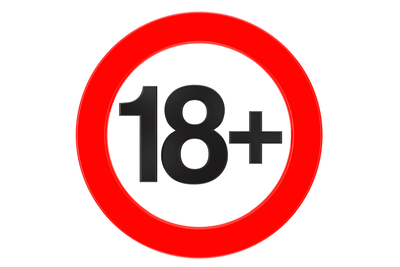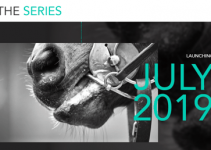 Bookmakers have reacted with shock to a decision from the United Kingdom Gambling Commission to issue fines to bookies that accepted bets from people under the age of eighteen at Royal Ascot last summer. The fine is due to be 2.5 percent of their annual gross gambling yield, which is the amount of money bookmakers have at the end of the year after winnings have been paid out but before any costs that they may have in addition to that are paid.
Bookmakers have reacted with shock to a decision from the United Kingdom Gambling Commission to issue fines to bookies that accepted bets from people under the age of eighteen at Royal Ascot last summer. The fine is due to be 2.5 percent of their annual gross gambling yield, which is the amount of money bookmakers have at the end of the year after winnings have been paid out but before any costs that they may have in addition to that are paid.
The fines could amount to as much as £7,000 for some of the bookmakers, should their appeals against them fail. The reason that on-course bookies have reacted so angrily to the announcement is that they feel that they are being punished differently to how bookmakers that operate online and on the high street would be punished for the same offence. None of the bookmakers are denying wrongdoing.
Caught by the UKGC’s Secret Underage Punters

The Gambling Commission ran the tests during the week of the Royal Ascot meeting, working in conjunction with Trading Standards and the Royal Borough of Windsor and Maidenhead. People under the age of eighteen, believed to be sixteen-years-old, approached seventeen bookmakers at Ascot and attempted to place bets to the value of £5.
Whilst ten of the bookmakers approached refused to place the bets, seven of the seventeen did so without asking for any age verification. It is a test that is carried out relatively regularly by the UKGC, having previously occurred in 2014. Back then all twenty of the bookmakers approached accepted the bet, with written warnings issued as a result.
Bookies Face Huge Fines of 2.5% Gross Gambling Yield

The entire process of the investigation is still underway, which is why the Gambling Commission is unwilling to comment on what’s happened. What we do know is that the bookmakers are appealing the UKGC’s decision to issue them with a fine. The fine that is being mooted is 2.5% of the bookmaker’s annual Gross Gambling Yield.
That is the bookie’s net after winnings have been paid out but before any expenses and other things are paid for. The feeling of the Federation of Racecourse Bookmakers is that the fine is ‘disproportionate’, with Robin Grossmith from the organisation arguing that high street bookmakers would never be fined such a large amount for taking a £5 bet from a minor.
If online or high street bookmakers were asked to pay 2.5% of their Gross Gambling Yield then it would amount to ‘tens of millions of pounds’. £7,000 plus is the equivalent of that sort of amount for bookmakers that work exclusively on the track and without the same overwhelming income that is brought by working online.
The Fines Shows Lack of Formal Procedure

Speaking to The Guardian newspaper, Mick Williams of the Association Of Racecourse Bookmakers pointed out that there doesn’t seem to be a procedure in place for this sort of situation. Instead, the Gambling Commission appears to be reacting how it wants in response to the current desire for young people to be protected from betting.
Williams said, “It’s scary. You’d think there’d be a procedure in place: a warning for the first offence, a fine for the second and then at some stage a possible suspension of your licence. But there’s none of that. They’ve spent seven months thinking about it and have come up with this”. The UKGC’s refusal to comment makes it a difficult stance to understand.
The only information that we have to work with from the Gambling Commission was issued by its Chief Executive, Richard Watson. Speaking last summer he said, “Every single gambling business must protect children from gambling but the on-course bookmakers’ results have remained unacceptable”. At the very least that seems to point to the reasoning behind the crackdown.
Do Online And High Street Bookmakers Get Away With More?
The main criticism of racecourse bookmakers appears to be that the fine is ‘disproportionate’ in comparison to what high street and online bookies would be made to pay for a similar infraction, but is that true? In 2015, for example, two arcades in Blackpool were fined £2,000 for failing a second age test. Where does that amount sit comparatively?
Interestingly, Stride Gaming declared that the £7.1 million fine that it had to pay when its sub-company Daub Alderney suffered ‘systematic failings’ in its monitoring of money laundering and problem gambling was ‘excessive and disproportionate‘. The words mirror those used by the on-course bookmakers, even if the fine was issued for a different reason.
Perhaps the biggest difference between the world of on-course bookies and those that operate on the high street is that people under the age of eighteen are actively banned from entering the property of high street bookmakers. The same is not true for those aged seventeen or under when it comes to racecourses.
Racecourse Rules For Under 18’s

In the Guidance For Betting Ring Managers that was published in March of 2017 there are numerous things that are looked at in detail. The size of a pitch that a bookmaker can set up is outlined very specifically, for example. Similarly there are rules on umbrellas, signage and what should happen with bookies that arrive late to their pitch on race day.
Something that is not outlined with any degree of specification, however, is whether or not people under the age of eighteen are allowed into the betting ring. Indeed, the Federation of Racecourse Bookmakers has its own guidance, which specifically says the following:
“Racecourses, in common with other tracks, do not exclude under-18s from betting areas (other than on non-racedays). This is in contrast to other traditional betting venues, such as a high street betting shop, where potential underage gamblers may be identified and tackled long before they actually attempt to place a bet”.
The guidance goes on to reference the ‘Challenge 21’ approach that some vendors of things such as alcohol take, where people who appear to be younger than twenty-one are asked to prove that they’re over eighteen. Even so, it says, “Nevertheless, there is an absolute responsibility on bookmakers to refuse bets from potential bettors whom they believe to be under the age of 18”.
Things Are Trickier For On-Course Bookmakers
The simple reality of the world of betting is that things are trickier for on-course bookmakers in terms of identifying people under the age of eighteen and stopping them from placing bets. Whereas online bookies have numerous tests that they can run to ensure someone is eighteen or older before placing bets and high street bookmakers can stop them from coming on their property, there’s a lower threshold on racecourses.
The fact that racecourse often run family days and other such events during meetings, which are aimed at encouraging a younger audience to get involved with the world of horse racing, means that young people will often be present on the track side. In fact, it’s not uncommon for parents to place bets for their children or to encourage them to hand the money for a bet over to the bookie when placing a wager.
This point is made by on-course bookmaker Geoff Banks. He said, ““Racetrack betting does not, in my opinion, contribute meaningfully to problem gambling issues. What I constantly see on racetracks is parents trying to place wagers for their children in front of us. ‘Which one do you want dear?’”
Speaking of the responsibility put on on-course bookmakers, Banks went on, “On occasion, you get teenagers trying to place wagers and when challenged, they cannot produce appropriate ID and we refuse. Apparently, many parents see strict regulation of gambling to be unnecessary in the particular environment of a racecourse”.
With thousands of people attending racecourses for meetings and bookmakers having to deal with hundreds of people an hour looking to place bets, it’s hardly a surprise that some might slip through the cracks during such a busy time. Obviously it’s entirely right that they should be fined, but perhaps critics of the UKGC are right that the fines are excessive in these instances.



